Throughout the year Carl Heneghan, professor of evidence-based medicine at Oxford, and Simon Clarke, associate professor of cellular microbiology at Reading, have written for The Spectator about the virus and the government’s measures to contain it. They have had very different outlooks, but can they agree about what will happen next? They start by looking back at their early predictions.
CLARKE: During the first wave I said: don’t lock down too quickly because there will be a cost. People won’t like it. But if we had acted sooner, perhaps we wouldn’t have been locked down for quite so long and the death toll probably wouldn’t have been so high. I might also have changed my early resistance to masks, though I still don’t think they’re all that great at stopping transmission in either direction. The decisions to change policy were made by politicians. It first happened in Scotland where Nicola Sturgeon stood up and said she thought that they were needed. Then Boris Johnson said he thought that there was evidence for their effectiveness. I’ve yet to see that evidence. I’m not entirely sure that I’ve been convinced. But that ship has sailed, in many respects.
HENEGHAN: The thing that surprised me is we’re now at the end of December and we’re still in restrictive measures. I thought that somehow by the middle of summer we’d be returning to normal. But testing showed throughout summer that this pathogen has become endemic. It is out there and is going to stay out there. The idea that you remove it and have ‘zero Covid’ has now been put to bed: you can’t turn off the tap and make viruses disappear. The question is: when does it start being seen as a seasonal pathogen rather than a pandemic? That’s a really important question and there are two ways to deal with that: either the population builds up immunity through continued infection, or with a vaccine that confers immunity. And that’s where we are now.
Another thing that surprised me was the sharp uptick in excess deaths in April this year. We got above 20,000 total deaths a week for about a five-week period. In the second wave, we are seeing some excess deaths, but they’re not as much as that.
CLARKE: The numbers will go up again pretty soon in January. The response to that, I imagine, will be to move most of the country into Tier 3: a de facto third lockdown.
HENEGHAN: We need a sustainable policy. Look what happened before the last lockdown: in the three or four days beforehand it was like Christmas Eve out there. I went to get my hair cut and saw eight to ten people queuing outside the hairdressers on the high street, where you couldn’t get past each other. Restaurants were full. Look at the Google mobility data: that is exactly what happened. Then you have a respite period and when you open up again, it’s like a champagne cork. You see the pictures of the high street, like Nottingham, which had to close down its market because they just had too many people with pent-up angst or societal anger — if you like — saying: ‘We need to get out there.’
The Christmas factor
CLARKE: What do you think the chances are of kids giving it to their parents this Christmas — then their parents going to work, or the pub or wherever, and spreading it round? Isn’t that what the government at least thinks will happen?
HENEGHAN: Primary-age children seem to not transmit this disease. The predominant infection in primary school is rhinovirus and some adenovirus — the common cold, the snotty nose. But teenagers are a transmission risk. If you isolated them and gave them a longer holiday, you probably could go into Christmas and then reduce that household transmission hopefully, but in the next week you might see them contribute significantly to cases in places like London, where there are nearly a million children in this age group. Instead of mass testing, I would have used the money to provide every child with a laptop and switched to home-learning before the end of the school term. A three-week break in schools gives you a natural social distancing break in the transmission of this infection.
CLARKE: If we have a fairly mild winter, where the weather is decent and people mix, I think that could be more of a problem than a hard winter, which would be more likely to keep people in their homes, kids out of school and people out of their workplaces. We all know what it’s like in this country: winter can be pretty mild and uninspiring or you can be wading through two foot of snow. So it really does depend, to a large extent, on what the weather does over January and February.
HENEGHAN: Each week there’s a report that monitors influenza-like illness, acute respiratory infections and pneumonia, lower respiratory tract infections, and they are running at about 25 per cent of what we normally would see at this time of the year. So that is reassuring. Hospitals have managed to cope. But I’ve been a doctor for 20 years and in 15 of those years, we have ended up short of beds that we needed going into winter. A shortfall of something like 20 per cent. This is something Germany never has a problem with because they’ve got three times as many general and acute adult beds and nearly four times as many intensive care beds. Britain is just underfunded in terms of hospital beds and — when we have an outbreak like this — unable to cope.
CLARKE: We are underfunded, you’re quite right, but the question is what to do now, given the situation. If we risk filling intensive care units with Covid patients in their forties, fifties and sixties, then that presents us with a problem. We hear a lot about the average age of death, but it ignores the average age of hospital admissions, which are quite different, and I don’t think it’s acceptable to let large numbers of working-age adults get ill enough to end up in intensive care. My personal opinion is that this is why the government goes for lockdowns: they know the bottleneck is the critical care and intensive care beds. When they are full, there will be no emergency capacity for the most serious operations, which can’t wait. In the spring wave, we saw nearly two-thirds of intensive care beds taken up with Covid. That means fewer beds available for smashes on the motorways, for the operations that routinely require time in intensive care afterwards, or for an operation that doesn’t go well. This time, we have managed not to overwhelm the system. Arguably that’s because most of the country has spent four weeks in unpleasant lockdown.
Do lockdowns work?
HENEGHAN: I think the jury’s still out on whether we should have locked down earlier, whether it makes a big difference. You have to judge it from beginning to end. In May, you’d have said: yes, we didn’t lock down early enough. But now countries which had very hard lockdowns are doing worse. Rather incredibly, when you start to break down the numbers and the epidemiology, Covid deaths peaked on about 8 April. If it takes three weeks for a fatal infection, this suggests cases started falling on 18 March — before the lockdown.
CLARKE: That’s how a statistician would measure it. But people might ask: why close the stable door after the horse has bolted?
HENEGHAN: You come to the point where the predominant feature is social distancing and handwashing. Did we need to shut down schools? Well, we’ve learnt that we did not need to do that. Do we need to shut down some parts of the national infrastructure? Well, you can do. But what are the economic consequences, what are the wider consequences?
In Liverpool, it was fed back to the public that there was a problem in the hospitals. People’s behaviour then changed, there was no need to go beyond Tier 3. You just say: look, the major issue is overwhelming the NHS, that’s why we need your help right now. Once people understand that they can modify their behaviour, infections fall and you can get back open.
CLARKE: Undeniably it would be much better to do this voluntarily. But would they actually do it? Won’t they get bored with it very quickly? We saw over the summer reports of people not complying with rules and regulations. It was almost advanced as a reason not to have them. The attitude seemed to be: well, people aren’t really bothering with them so why do we have them?
The vaccine and the science
HENEGHAN: My hope is that the vaccine works in the people most likely to benefit: the elderly — that it will have a huge impact and get rid of 75 per cent of the mortality effects of this disease. It’s going to take a long time to vaccinate everybody. We’ve still got at least another six months of this before we get into April/May, when the sun will emerge again and we can start to have some relaxation. Until then, we’ll have to talk about a benefit to harm ratio: lockdowns may reduce the transmission of the virus, but also create significant harms in society.
CLARKE: I agree. The notion that everything will be over by Easter is fanciful. We need to maintain our surveillance; we need to understand what’s happening with the virus in the population. Unfortunately, that will require people to maintain their social distancing. Nobody likes living a distanced life — I certainly don’t — but unfortunately that’s what’s going to happen. I get people emailing me all the time saying: ‘When you go on the news and say we will have another lockdown, you are forgetting what damage it does to the economy.’ Actually, I’m not at all, but I’m a scientist. It is for us to report what is going on and it’s for the economists — of whom there are a great many in government, it’s called the Treasury — to inform the politicians of what economic damage it will inflict.
I think politicians need to be more upfront about where they want the balance of risk in civil society to lie. What do they regard as an acceptable Covid toll? The notion of eradication — of zero Covid — is nonsense. But there is a lack of grown-up conversation in terms of being honest with society and saying: we could accept this level of death in order to have this amount of life and not have the economic harms of lockdown.
HENEGHAN: I agree that, as scientists, we need to respect uncertainty. We have to ask questions. We can disagree — and there are aspects where we come at the problem in slightly different ways. But we are actually, in many ways, not that far apart.
Got something to add? Join the discussion and comment below.
Get 10 issues for just $10
Subscribe to The Spectator Australia today for the next 10 magazine issues, plus full online access, for just $10.
This discussion was moderated by Ben Lazarus, special projects editor at The Spectator.
You might disagree with half of it, but you’ll enjoy reading all of it. Try your first month for free, then just $2 a week for the remainder of your first year.

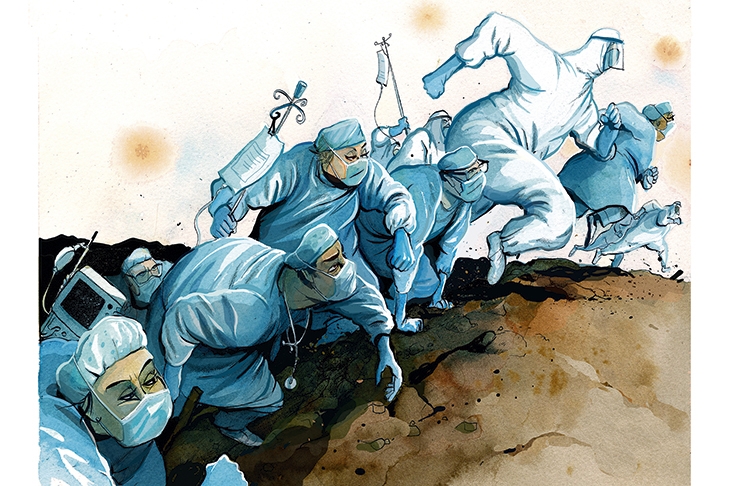
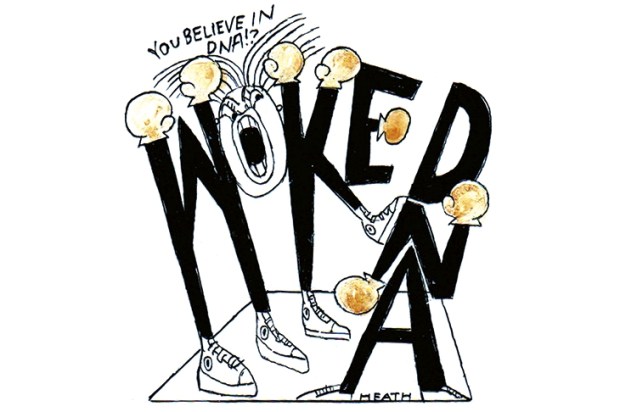
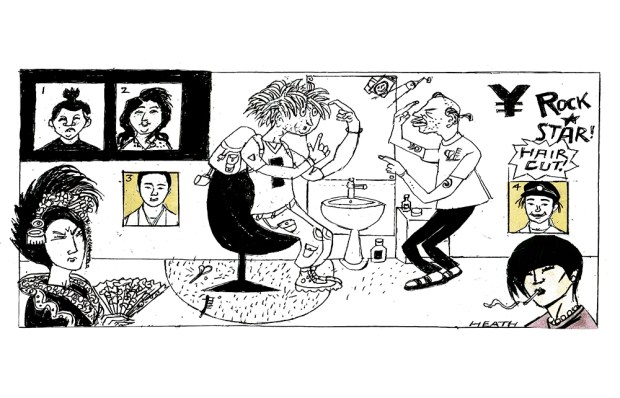

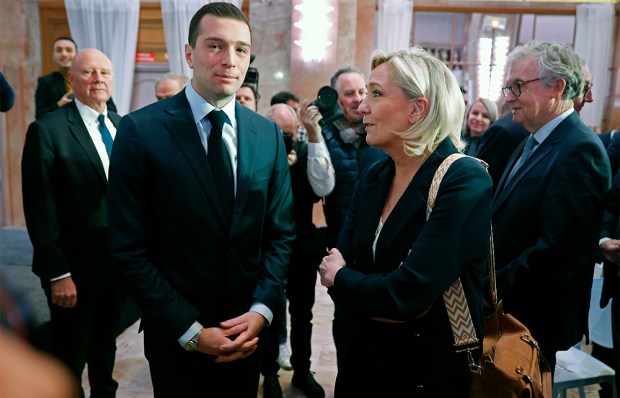
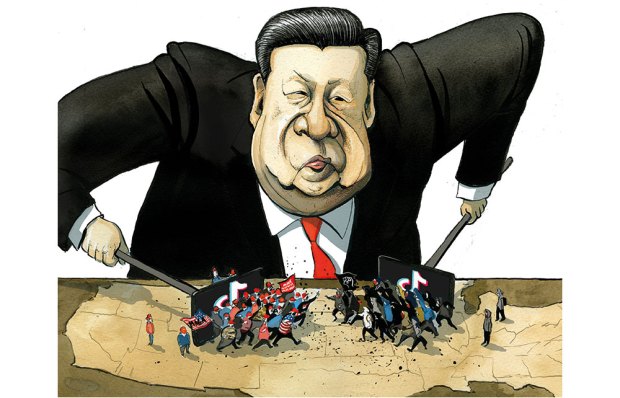
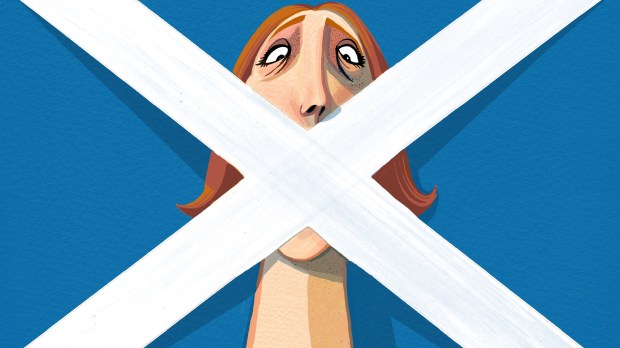






Comments
Don't miss out
Join the conversation with other Spectator Australia readers. Subscribe to leave a comment.
SUBSCRIBEAlready a subscriber? Log in